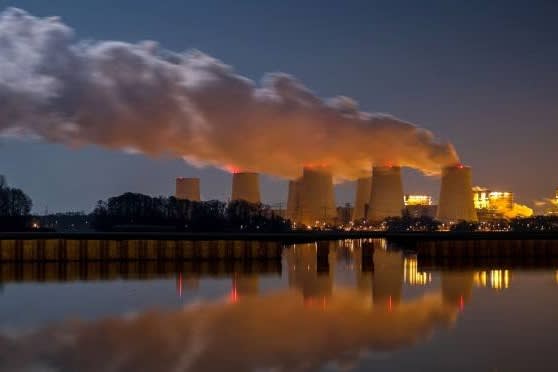Why airline schemes for easing guilt over flying are dodgy

Carbon offset updates
Sign up to myFT Daily Digest to be the first to know about Carbon offset news.
Forget Ryanair. British Airways is the real low-cost airline, at least for carbon offsets. The UK flag carrier offers these to passengers at almost half the price charged by its Irish rival for some of the same trips.
Both are pricing carbon at big discounts to what industrial companies pay to cover excess emissions. The airlines say they are giving passengers the chance to “fully offset” flights and go “carbon neutral” via payments to environmental projects.
Superficially, it is a triple win. Environmental charities need the money. Airlines want passengers to share the cost of giving aviation a greener gloss. Many travellers yearn to avoid what is called in German “flugsham” — the guilt of contributing to climate change.
The snag is that prices are unrealistically low. If offsets were marketed as financial products, regulators would be asking questions about the promises made.
Carbon calculators are at the heart of the issue. You can see why an increasing number of airlines, from JetBlue in the US to Lufthansa in Europe and Cathay in Asia, build these into online sales systems. For customers, it feels nice to hit a button and generate an offset price they can add to their flight package. Particularly when prices are so affordable.
BA, for example, was last week quoting £1.72 (€2) to offset a return trip in economy class from London to Alicante. Ryanair’s website quoted €5.67. BA’s offsets for long-haul trips are even cheaper per mile than short-haul offsets — under £10 to fly to Hong Kong and back
I calculate BA is pricing carbon at about €8 to €10 a tonne. I reckon Ryanair is closer to €18 per tonne. EU and UK industrial companies are, meanwhile, paying about €56 per tonne via emissions trading schemes.
Defenders of carbon offsets complain I am comparing apples and pears. They say governments limit the supply of permits to make emissions to push up prices. Quite so — unless prices are higher, there is no chance climate change will be arrested.
It is questionable whether many of the carbon sequestration projects that provide cheap offset certificates have the financial heft to lock up as much of the stuff as claimed.
One scheme I looked at provides clean drinking water in Africa, for example. Sinking boreholes and digging wells are great projects that are well worth backing. But I am unconvinced by the argument that these qualify as offsets by reducing heavily the amount of wood burnt to sterilise drinking water. Years ago, I lived in an Indian village as a development volunteer. People there did not have the fuel or the time to boil drinking water.
Forestry schemes look like a clearer way to reduce carbon, by turning it into trees. But in developed nations these often “preserve” woodlands which might not be cut down anyway. Planting trees where they are absent looks like a better bet. After all, a tree supposedly sequesters upwards of 10kg of carbon a year, getting it to a running total of about a tonne in a century.
Logic peters out, however, when you ponder the task facing latter-day Johnny Appleseeds. Suppose they sought to plant enough trees to soak up all aviation’s yearly emissions. My back-of-an-envelope figuring suggests these gallant arboriculturists would need to cover an area roughly the size of Norway with saplings before protecting them from loggers, drought and wildfires for the requisite 100 years. I doubt you can do that for €10 per tree.
Sola Zheng, of the International Council on Clean Transportation, a US non-profit organisation, argues airlines should focus on alternative fuels and using them efficiently.
Airlines would riposte that they are already doing that. My feeling is that voluntary carbon offset schemes could help build public awareness of the cost of arresting climate change — if they used credible numbers and were more transparent.
First, airlines need to disclose clearly the assumptions behind their online calculators. Second, these gizmos need to spit out a carbon price somewhere roughly in the same postcode as the figure produced by emissions trading schemes. Aviation bodies can help by setting tougher guidelines.
There is at present no push for carbon offsets to be regulated like financial products. That is just as well given the likely overheads. But it is time for the industry to be far more realistic about what it is marketing and for how much.
Climate Capital

Where climate change meets business, markets and politics. Explore the FT’s coverage here.
Are you curious about the FT’s environmental sustainability commitments? Find out more about our science-based targets here